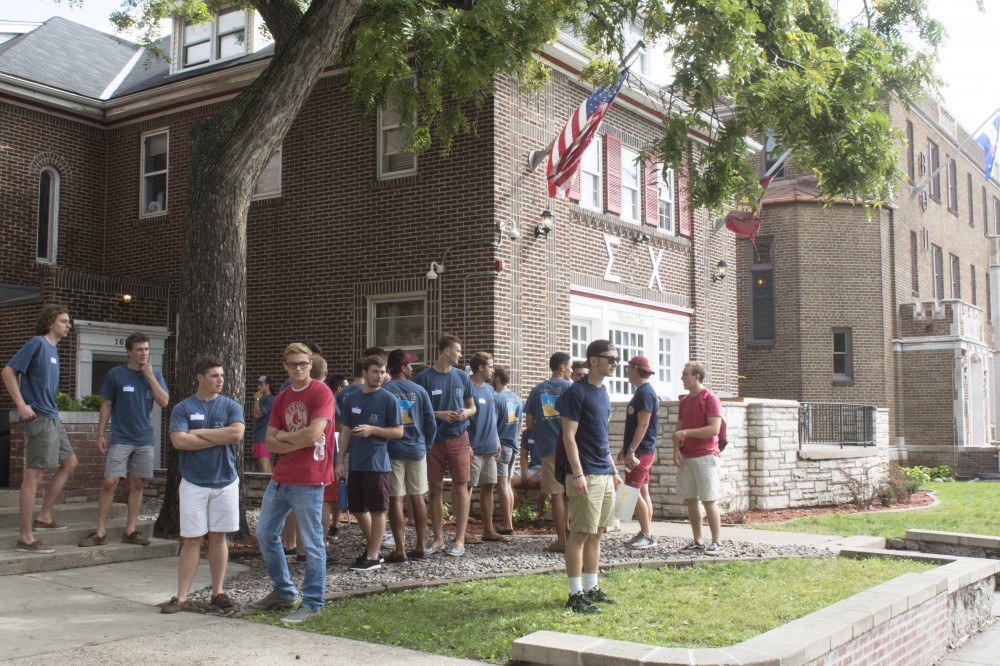This past Saturday, protesters assembled and marched along fraternity row, speaking out against campus sexual assault. According to the Minnesota Daily’s coverage of the event, more than 100 people attended the march, including numerous fraternity members, each with their greek letters on display.
This representation from within the greek community is greatly reassuring and necessary for combatting sexual assault on campus — even the cases which happen outside of fraternity walls.
Fraternity members are often associated with rape on campus, which isn’t necessarily an unfair characterization. A 2007 study published in the Journal of Student Affairs Research and Practice found fraternity members were three times more likely to commit sexual assault than other men on college campuses, and it’s the fraternity experience that led to these increased rates of sexual assault. In an op-ed to CNN, John Foubert, who authored the study, cited it as one of three reports which reached the same statistic.
However, as the much-publicized Gopher football team’s alleged sexual assault case demonstrates, this problem isn’t limited to fraternity row. It’s much larger and far more complex.
There is no typical profile for a rapist, and sexual assault has various motivating factors. Despite the cases which routinely grab headlines, college rape isn’t solely perpetrated by men with power and influence on campus, either. That said, greek members are the figures on campus whose advocacy has the potential to make a great impact.
“We’re going to need true allies on the inside because you guys have the privilege of making change from the inside out,” former Delta Upsilon member Dawson Kimyon said in the Daily’s coverage of the protest.
Kimyon was the member who notified DU’s headquarters about sexual assault allegations at the University of Minnesota chapter, which was later suspended by its headquarters.
The concept of brotherhood, especially within the context of greek life, has become permanently entangled with discussions of toxic masculinity and rape culture on campus. But when coupled with a sense of accountability and the drive to do good by those who aren’t sporting the same greek letters, ‘brotherhood’ can be a positive and powerful thing.
Kimyon told the Daily that he hadn’t received backlash since speaking out, but this isn’t the case for everybody. When fraternity members speak out against their brothers, it is not only their sense of brotherhood which is threatened; their whole lives could be upended. There’s a fear that friends, business prospects and, for many, a second family could disappear in an instant.
But staying silent only perpetuates the problems it aims to avoid, and it creates a toxic environment for current and future students, greek or not.
Contrary to a letter to the editor published last week, I don’t believe greek life should be dismantled. We need their voices now more than ever.








